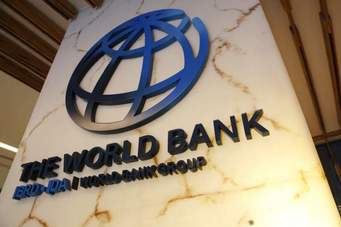Ghana’s moderate to high exposure to imports of wheat, edible oils and fertilisers from Russia has triggered increases in the prices of foodstuffs and certain commodities on the market.
According to the latest World Bank Africa Pulse report, Ghana imports about 33% of wheat and a little above 20% of fertilizers from Russia, ranking it among African economies with high dependence on the European country.
“About one-third of the wheat imported by the region comes from the two Eastern European countries. The countries with the highest exposure to wheat trade from Russia and Ukraine (when considering jointly their share in total wheat imports, total cereal imports, and total imports) are the Democratic Republic of Congo, the Republic of Congo, Uganda, Ethiopia, and Mauritania. Large countries in the region also have moderate to high exposure to wheat imports from Russia and Ukraine, such as Kenya (29.4% from Russia and 10.1% from Ukraine), Ghana (33.9% from Russia), Mali (32% from Russia and 8% from Ukraine), and Nigeria (21.1% from Russia and 5.1% from Ukraine).
The report emphasised that the impact of the Russia-Ukraine conflict on commodity prices has compounded existing challenges in global food markets, including increasing prices and tightening supplies due to the COVID-19 pandemic, among others.
This has already pushed inflation rate high to 19.4% in March 2022, with food inflation exceeding 24%.
The World Bank said Ghana together with Kenya, Mali and Nigeria have moderate to high exposure to wheat imports from Russia.
Again the country together with other African countries including Côte d’Ivoire have moderate to high exposure of edible oils and fertilisers from Ukraine and Russia.
“Several countries in the region are exposed to trade with Russia and Ukraine for edible oils— especially those importing sunflower seed oil—as well as fertilizers. The countries with the greatest exposure are Sudan (25% of its imports come from Russia and 14% from Ukraine), and Gabon (11% of its imports come from Russia). In the case of fertilizers, the entire region [Africa] is exposed, with 8.4% of its imports coming from Russia and Ukraine (of which 7.7% comes from Russia). African countries like Senegal, the Republic of Congo, Mauritania, Ghana and Côte d’Ivoire have moderate to high exposure.”
The report further said the impact of rising global commodity prices on African countries’ terms of trade is uncertain.
For instance, the terms of trade may deteriorate in countries that are net oil importers or food importers and which lack other commodities to offset the increase in oil and food prices.
On the other hand, the terms of trade may improve in countries with a diversified basket of commodities.
“Oil abundant countries in the region (example Angola, Nigeria, the Republic of Congo, and Gabon) are expected to benefit from higher oil prices—although the windfall will be constrained in some of these countries by their inability to increase exports due to persistent oil production problems. Many oil importers in the region will benefit from the rally in global prices for industrial metals (South Africa and Zambia) and precious metals (South Africa, Tanzania, and Ghana)”, it added.
Latest Stories
-
Real Madrid beat Sevilla to keep pressure on leaders Atletico
58 minutes -
Liverpool put six past Spurs to go four points clear
60 minutes -
Manchester United lose 3-0 at home to Bournemouth yet again
1 hour -
CHAN 2024Q: ‘It’s still an open game’ – Didi on Ghana’s draw with Nigeria
1 hour -
CHAN 2024Q: Ghana’s Black Galaxies held by Nigeria in first-leg tie
2 hours -
Dr Nduom hopeful defunct GN bank will be restored under Mahama administration
3 hours -
Bridget Bonnie celebrates NDC Victory, champions hope for women and youth
3 hours -
Shamima Muslim urges youth to lead Ghana’s renewal at 18Plus4NDC anniversary
4 hours -
Akufo-Addo condemns post-election violence, blames NDC
4 hours -
DAMC, Free Food Company, to distribute 10,000 packs of food to street kids
5 hours -
Kwame Boafo Akuffo: Court ruling on re-collation flawed
6 hours -
Samuel Yaw Adusei: The strategist behind NDC’s electoral security in Ashanti region
6 hours -
I’m confident posterity will judge my performance well – Akufo-Addo
6 hours -
Syria’s minorities seek security as country charts new future
6 hours -
Prof. Nana Aba Appiah Amfo re-appointed as Vice-Chancellor of the University of Ghana
7 hours

